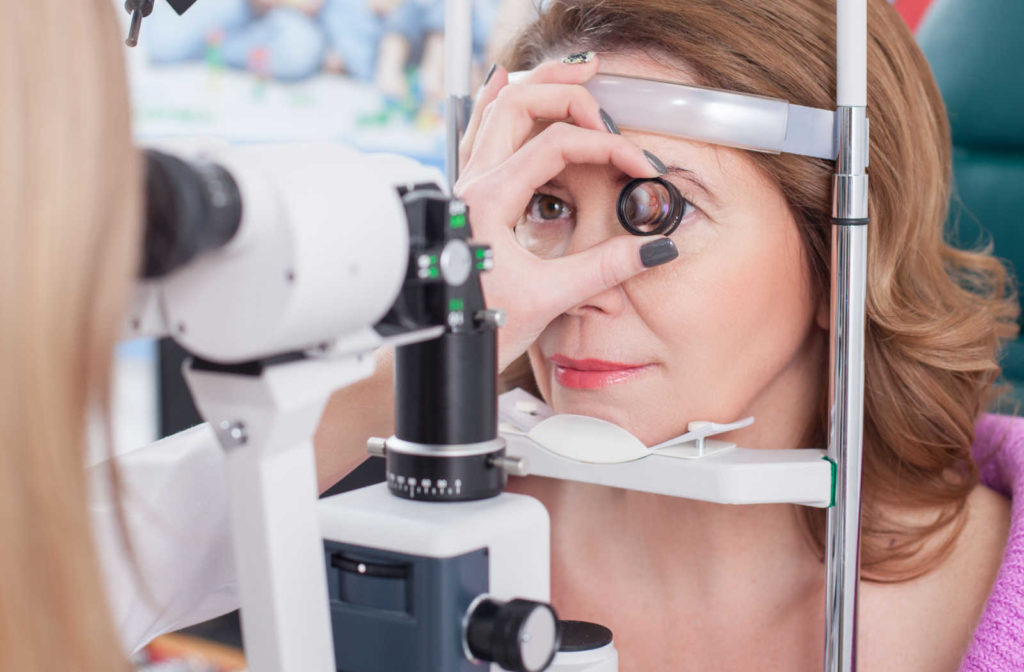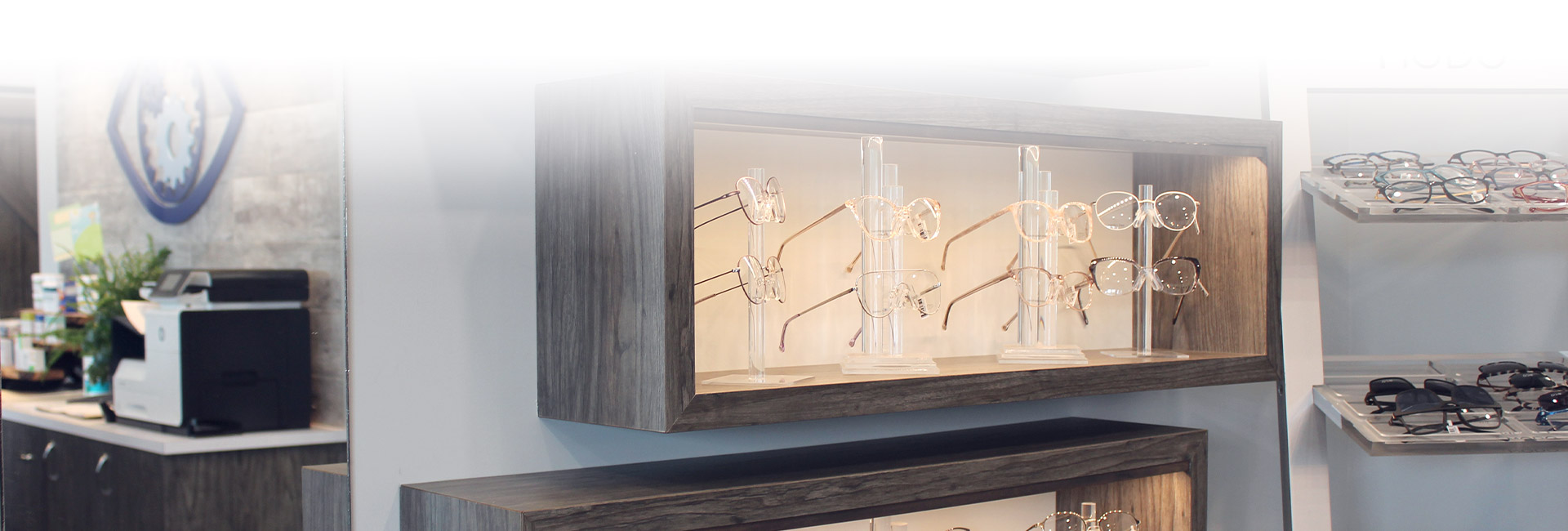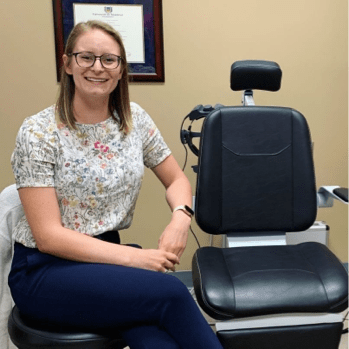Your eyes help you navigate everyday life and take in all of the memories you’re making. Taking care of your eyes now can help prevent eye issues and diseases in the future.
Routine eye exams and preventative health measures can help keep your eyes healthy. Extra maintenance like vision therapy can strengthen the connection between your eyes and your brain.
Even if your eyes are seeing clearly and feeling comfortable, there are still several ways you can take care of them to help you see clearly into the future.
Maintaining Your Vision
Eyes are often considered the windows to the soul, and for good reason! Your eyes have seen so much, helping you explore life and experience special moments—so it’s important to take care of them.
And, just like windows on a house need maintenance to keep the cold winter air out, our eyes need maintenance to continue seeing their best.
What Is Vision Maintenance?
Maintaining your vision all starts with attending your regularly scheduled eye exams.
The Canadian Association of Optometry recommends the following eye exam schedule:
- Infants should have their first eye exam between 6–9 months
- Kids ages 2–5 should have their eyes examined before starting school
- School-age children should have an eye exam every year
- Adults ages 20–39 get an eye exam every 2–3 years
- Adults ages 40–64 should increase to every 2 years
- Adults over 65 should have an exam every year
Why Do You Need Regular Eye Exams?
When you see your optometrist regularly, they can determine a baseline for your eye health and notice the slightest changes year over year.
Detecting changes can help your optometrist identify eye diseases and health issues in their earliest stages.
Children’s Eyes
Eye issues children commonly encounter include:
- Myopia, also known as nearsightedness, makes distant objects appear blurry.
- Hyperopia, also known as farsightedness, makes up-close objects appear blurry.
- Astigmatism causes blurry and distorted vision at varying distances.
- Amblyopia, also known as lazy eye, is caused by poor vision in one eye.
- Strabismus is a condition where one eye is not pointed in the same direction as the other.
Refractive errors like myopia, hyperopia, and astigmatism can be corrected with glasses or contact lenses. Both myopia and hyperopia that progresses in childhood can lead to further eye issues as your child ages.
When myopia is detected in children, there are ways to control its progression, helping to preserve their vision as they grow.
Vision therapy techniques can help correct issues like amblyopia and strabismus.
Adult Eyes
As we age, we are more susceptible to developing eye diseases and conditions:
- Presbyopia occurs when the eye’s lens loses elasticity, causing an inability to focus on close objects.
- Dry eye syndrome occurs when your eyes don’t produce quality tears, causing dry, irritated eyes.
- Cataracts occur when proteins in the eye’s lens clump together, causing blurry, hazy vision.
- Glaucoma often occurs due to high pressure in the eye (but not always), affecting peripheral vision first.
- Age-related macular degeneration occurs when the macula deteriorates, causing central vision loss.
If you have a systemic condition, like diabetes, you may be at a higher risk of developing eye conditions and diseases at an earlier age. And, you may be at risk of developing additional conditions like diabetic retinopathy or macular edema.
Your optometrist can detect eye diseases, conditions, refractive errors, and more during your routine eye exam thanks to examination technology and modern imaging technology.

Prevention Is the Best Medicine
If your optometrist detects an issue with your vision or eye health, they can recommend a treatment plan to help you preserve your sight.
However, the best medicine is prevention. Beyond seeing your eye doctor regularly, you can help take care of your eye health between visits.
Address Issues When You Experience Them
If you get something in your eye, you experience a blow to the face, or you accidentally spray a chemical in your eye, seek medical help from your eye doctor right away. Eye emergencies can happen at any time, and the sooner you get assistance, the less likely you are to cause permanent damage to your eyes.
Additionally, an issue like dry eye may seem irritating, but manageable—however, if left untreated, it can damage your eyes and cause long-term discomfort.
Lead a Healthy Lifestyle
It’s no secret that eating a nutritious diet can help you live a healthier life, and the things you put in your body can affect your eyes, too!
Adding leafy greens, carrots, egg yolks, red grapes, fish, and other foods high in vitamins and Omega-3s can help give your eyes a health boost and protect you from early onset age-related conditions.
And, if you smoke, talk to your doctor about smoke cessation! Smoking cigarettes has endless negative impacts on your eyes and overall health.
Practice Proper Eye Hygiene
Avoid causing harm to your eyes—practice proper eye hygiene. If you wear contact lenses, always wash your hands thoroughly before inserting and removing them, and only wear them for the amount of time recommended by your optometrist.
If you’re a makeup wearer, ensure you clean your face (especially your eye area) regularly, so debris doesn’t build up or irritate your eyes.
Putting anything near your eyes increases your risk of developing an infection like conjunctivitis (pink eye), which can have long-term effects on your eye health. Be smart, and keep your eyes as clean as possible.
And Most Importantly: Visit Your Optometrist
The protection your eyes receive when you visit your optometrist is invaluable. Even if your eyes feel comfortable and you think you can see “just fine,” you are only getting part of the picture of your overall ocular health. Your optometrist at Beyond 20/20 Optometry has the knowledge and technology to take care of your eyes properly. Schedule your next appointment today.




